The Entertainer (A Ragtime two step) by Scott Joplin – with sheet music to download from our Library.

Scott Joplin – the man and his music
It is with good reason that Sedalia, Missouri has become central to the Joplin story and the site of the annual Scott Joplin Ragtime Festival. While Sedalia was Scott Joplin’s home for only a few years, it was a home with a special meaning for him.
There is no question as to Joplin’s greatness, his talent, his importance in the history of ragtime and American music overall. Yet, for all his prominence and recognition, many of the facts regarding his life still elude us.
We are not quite sure, for example, when or where he was born. It seems he was born in Texas, probably in the northeast part of the state as U.S. Census records locate him there in July 1870 as a two-year-old child. As he was already two at that time (and was twelve when the next Census was taken, in June 1880) indicates that the frequently-cited and celebrated birth date of November 24, 1868 is incorrect.
So then, when was he born? Available documents point to a birth between June 1867 and mid-January 1868.
When he was still a young child, Joplin’s family left the farm on which his father (formerly a slave) worked as a laborer. They moved to the newly established town of Texarkana, which straddles the Texas-Arkansas border. The Joplins lived on both sides of the border.
Anecdotes relate that the young Scott Joplin gained access to a piano in a white-owned home where his mother worked, and taught himself the rudiments of music. In support of this story, we note its reflection in details of Treemonisha, an opera that Joplin published in 1911.
Joplin’s talent was noticed in Texarkana by a local German-born music teacher Julius Weiss who instructed him further by placing special emphasis on European art forms, including opera. Weiss’ influence may be the foundation of Joplin’s desire for recognition as a classical composer.
In the 1880s, the teenage Joplin lived for a while in Sedalia and attended Lincoln High School in the black neighborhood north of the railroad. He may have resided with one of several black families named “Joplin” that lived in Sedalia. Unconfirmed anecdotes tell also of his starting a musical career in the 1880s and traveling to St. Louis, which was to become a major center of ragtime.
The first documented sign of Joplin’s musical career is in the summer of 1891 when, as reported in newspapers, he was back in Texarkana working with a minstrel troupe. In 1893, he was in Chicago at the time of the World’s Fair, leading a band and playing cornet. After the fair, he returned to Sedalia, established it as his home, and played first cornet in the Queen City Cornet Band; a local ensemble of black musicians. His membership in the band was for about a year, and on leaving he formed his own band, working at dances and other events. While retaining Sedalia as his home base, Joplin continued the life of an itinerant musician. In 1895 he traveled as far East as Syracuse, NY with his Texas Medley Quartette, a vocal group.
When not traveling, Joplin worked in Sedalia as a pianist, playing at various events and sites, including the town’s two social clubs for black men, the Maple Leaf and Black 400 clubs (both founded in 1898). He also taught several of the local young musicians in town, most notably Scott Hayden and Arthur Marshall, with whom he later wrote collaborative rags.
In 1896, it appears that he attended music classes at George R. Smith College in Sedalia. Since the college and its records were destroyed in a fire in 1925, we have no evidence of the extent of Joplin’s studies, but anecdotes suggest that until the end of the 1890s he still lacked complete mastery of music notation.
This technical deficit did not prevent him from developing as a composer. In 1896 he published two marches and a fine waltz. Late in 1898 he tried to publish his first two piano rags, but succeeded in selling only Original Rags. This publication experience was not satisfactory as he was forced to share credit with a staff arranger. Charles N. Daniels’ name was added as “arranger,“ and was cited as composer on the copyright and in some newspaper advertisements.
Before Joplin published his next rag, he obtained the assistance and guidance of a young Sedalia lawyer, Robert Higdon. In August 1899 they contracted with Sedalia music store owner and publisher John Stark to publish the Maple Leaf Rag, which was to become the greatest and most famous of piano rags. The contract specified that Joplin would receive a one-cent royalty on each sale, a condition that rendered Joplin a small but steady income for the rest of his life. Sales in the first year were slight, only about 400, but by 1909, approximately a half-million copies had been sold, and that rate was to continue for the next two decades.
Within weeks of the Maple Leaf’s publication, Joplin completed The Ragtime Dance, a stage work for dancers and singing narrator. It is a folk-ballet of sorts, illustrating the type of dancing done in the Black 400 and Maple Leaf clubs. Stark announced its publication in September 1899, but then delayed issuing it until 1902. However, the work was staged at Wood’s Opera House in Sedalia on November 24, 1899, performed by a group of talented, young Sedalians from the Black 400 Club.
Joplin published one more rag while in Sedalia, Swipesy, a collaboration with his student Arthur Marshall. He then moved, in 1901, to St. Louis with his new wife, Belle, the widow of Scott Hayden’s older brother.
In St. Louis, Joplin associated with ragtime pioneer and saloon owner Tom Turpin and with other ragtimers, but he performed little, preferring to devote his time to composition and teaching. His publisher John Stark had also moved to St. Louis, and Joplin frequently passed time at the publishing office talking with other ragtimers and with Stark’s daughter Eleanor, a highly accomplished classical piano recitalist. Eleanor was part owner in her father’s firm and was his major musical adviser. Her influence on both her father and on Joplin seems to have been significant, for Stark called his publishing firm “The House of Classic Rags,” and Joplin further developed his aspirations as a classical musician.
Among Joplin’s significant publications in St. Louis were Sunflower Slow Drag (a collaboration with Scott Hayden), Peacherine Rag, The Easy Winners (all in 1901); Cleopha, The Strenuous Life (a tribute to President Theodore Roosevelt), A Breeze from Alabama, Elite Syncopations, The Entertainer, and The Ragtime Dance (all in 1902).
Browse in the Library:
| Artist or Composer / Score name | Cover | List of Contents |
|---|---|---|
| Trinity Classical Guitar 2020-2023 INITIAL |
 |
|
| Trinity Classical Guitar Grade 05 2010-2015 |
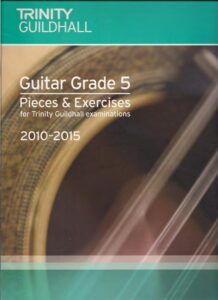 |
|
| Trinity Electronic Keyboard Grade 1 Pieces & Technical work |
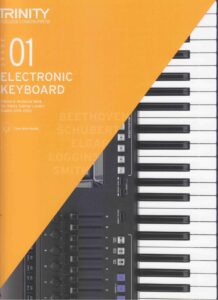 |
Trinity Electronic Keyboard Grade 1 |
| Trinity Electronic Keyboard Grade 2 Pieces & Technical work |
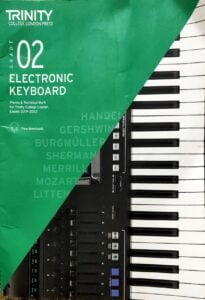 |
Trinity Electronic Keyboard Grade 2 |
| Trinity Electronic Keyboard Grade 6 Pieces & Technical work |
 |
Trinity Electronic Keyboard Grade 6 |
| Trinity Electronic Keyboard Grade 7 Pieces & Technical work |
 |
Trinity Electronic Keyboard Grade 7 |
| Trinity Electronic Keyboard Initial Grade 2019-2022 |
 |
|
| Trinity Electronic Keyboard Initial Pieces and Technical Work 2015-2018 |
 |
|
| Trinity Electronic Keyboard Sample Booklet |
 |
|
| Trinity Guitar 2016 2019 Grade 1 |
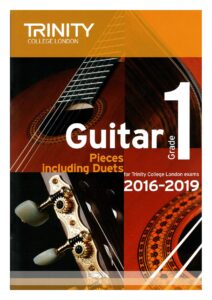 |
|
| Trinity Guitar 2016 2019 Grade 2 |
 |
|
| Trinity Guitar 2016 2019 Grade 3 |
 |
|
| Trinity Guitar 2016 2019 Grade 4 |
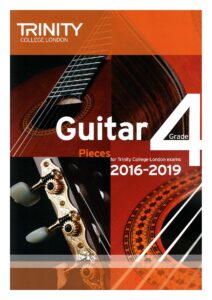 |
|
| Trinity Guitar 2016 2019 Grade 5 |
 |
|
| Trinity Guitar 2016 2019 Grade 6 |
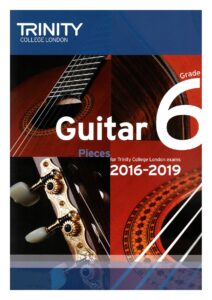 |
|
| Trinity Guitar 2016 2019 Grade 7 |
 |
|
| Trinity Guitar 2016 2019 Grade 8 |
 |
|
| Trinity Guitar 2016 2019 Initial |
 |
|
| Trinity Guitar Initial to Grade 5 Scales Arpeggios and studies |
 |
|
| Trinity Piano Grade 1 Pieces and exercises 2018 2020 |
 |
Trinity Piano Grade 1 Pieces and exercises 2018 2020 |
| Trinity Piano Grade 2 Pieces and exercises 2018 2020 |
 |
|
| Trinity Piano Grade 3 Pieces and exercises 2018 2020 |
 |
|
| Trinity Piano Grade 5 Pieces and exercises |
 |
|
| Trinity Piano Grade 6 (2021-2023) Extended Edition |
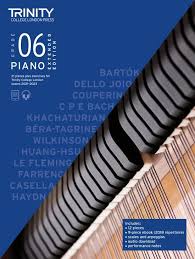 |
Trinity Piano Grade 6 (2021-2023) Extended Edition |
| Trinity Piano Grade 6 Pieces and exercises |
 |
|
| Trinity Piano Initial Piano 2018-2020 | Trinity Piano Initial Piano 2018-2020 | Trinity Piano Initial Piano 2018-2020 |
| Trinity Piano Pieces And Exercises Grade 1 2015 2017 |
 |
Trinity Piano Pieces And Exercises Grade 1 2015 2017 |
| Trinity Piano Pieces And Exercises Grade 2 2015 2017 |
 |
Trinity Piano Pieces And Exercises Grade 2 2015 2017 |
| Trinity Piano Pieces Grade 1 2021-2023 |
 |
Trinity Piano Pieces Grade 1 2021-2023 |
| Trinity Piano Pieces Grade 2 12 Piano Pieces 2021-2023 |
 |
Trinity Piano Pieces Grade 2 12 Piano Pieces 2021-2023 |
| Trinity Rock and Pop Guitar Grade 8 (Contemporary and classic songs) with Tablature |
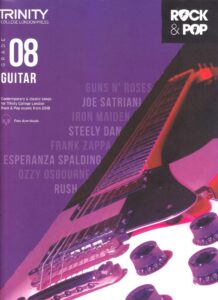 |
Trinity Rock and Pop Guitar Grade 8 (Contemporary and classic songs) |
| Trinity Sight Reading Book 1 Sound at sight Piano |
 |
|
| Trinity Theory Of Music Workbook Grade 1 |
 |
Trinity Theory Of Music Workbook Grade 1 |
| True Silent Hill-2- Akira-Yamaoka |
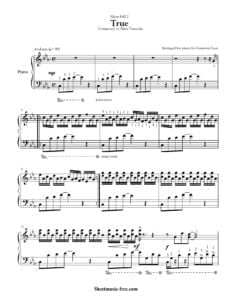 |
|
| Truman Show, The Reunion Philip Glass |
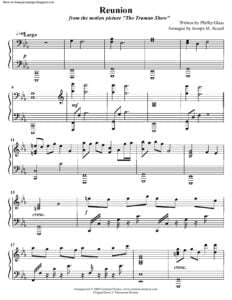 |
|
| Trumpet Method Allen Vizzutti Trumpet Method Book 1 2 3 Complete |
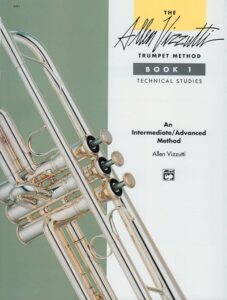 |
|
| Trumpet Method Anthony Plog Method For Trumpet Complete 7 books |
 |
|
| Trumpet Omnibook For B Flat Instruments Transcribed Exactly From Artist Recorded Solos |
 |
Trumpet Omnibook For B Flat Instruments Transcribed Exactly From Artist Recorded Solos |
| Trumpet Solos, Easy (The Canadian Brass) |
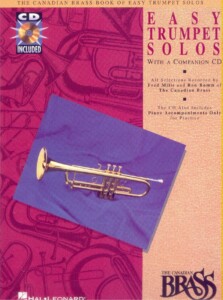 |
|
| Trumpet, The (John Wallace, Alexander McGrattan) Yale Musical Instruments Series (Book) |
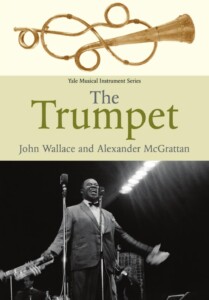 |
|
| Tsim Sha Tsui Stroll (Lust, Caution OST) Alexandre Desplat | ||
| Tu vuo’ fa’ l’Americano (Renato Carosone) | ||
| Tubular Bells (Mike Oldfield) |
 |
|
| Tubular Bells Intro – Mike Oldfield (Musescore File).mscz | ||
| Tuck Andress Europa by Carlos Santana guitar TABs |
 |
|
| Tuck Everlasting (The Musical) Music By Chris Miller Lyrics By Nathan Tysen (Piano Vocal Selections) |
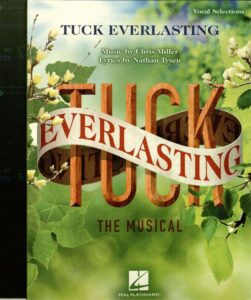 |
Tuck Everlasting (The Musical) Music By Chris Miller Lyrics By Nathan Tysen (Piano Vocal Selections) |
| Tunes For Ten Fingers A First Piano Book By Pauline Hall (Oxford) |
 |
|
| TV and Movie Themes (Piano, Vocal, Guitar) |
 |
TV and Movie Themes (Piano, Vocal, Guitar) |
| TV Detective Themes For Solo Piano |
 |
TV Detective Themes For Solo Piano |
| TV Fake Book, The |
 |
TV Fake Book, The |
| TV Songs Big Book Of TV Theme Songs 2nd Edition Piano Vocal Guitar |
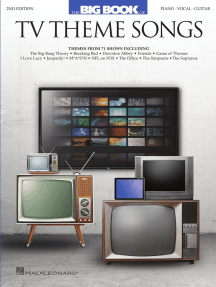 |
TV Songs Big Book Of TV Theme Songs 2nd Edition Piano Vocal Guitar Contents |
| Twelve Etudes Op 8 No 12 Scriabin (Musescore File).mscz | ||
| Twenty One Pilots – Goner |
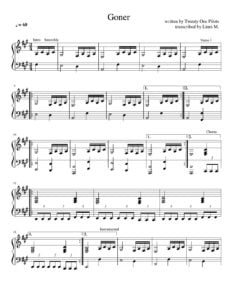 |
|
| Twenty One Pilots – Heathens – Piano |
 |
|
| Twenty One Pilots – Stressed Out Sheet Music | Twenty One Pilots – Stressed Out Sheet Music | |
| Twenty-Four Italian Songs And Arias Medium High |
 |
Twenty-Four Italian Songs And Arias, Medium High |
| Twice – Knock Knock Piano Solo |
 |
|
| Twilight – The Score – Carter Burwell |
 |
Twilight – The Score – CArter Burwell |
| Twilight saga – New Moon Music Score for Piano Solo Alexandre Desplat |
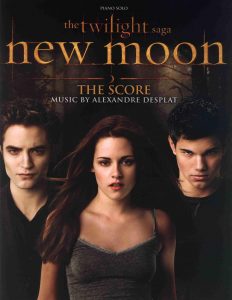 |
Twilight.New.Moon.Music.Score.for.Piano.Solo).Alexandre.Desplat |
| Twin Peaks – Audreys Dance Angelo Badalamenti | ||
| Twin Peaks – Laura Palmers Theme Angelo Badalamenti | ||
| Twin Peaks – Twin Peaks Theme Angelo Badalamenti | ||
| Twinkle Twinkle Little Star Variations Suzuki Guitar Vol. 1 (Musescore File).mscz | ||
| Two Socks theme (Dances with Wolves OST) John Barry | ||
| Two Steps From Hell Blackheart Piano Sheet Music by Thomas Bergersen |
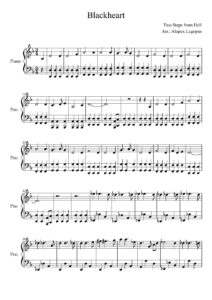 |
|
| Two Steps From Hell Flight Of The Silverbird (Piano Solo) Thomas Bergersen |
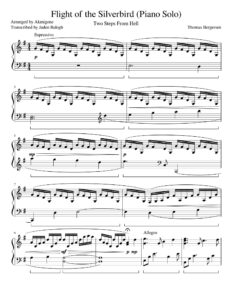 |
|
| Two Steps from Hell Invincible Sheet Music |
 |
|
| Two Steps From Hell Star Sky by Thomas Bergersen |
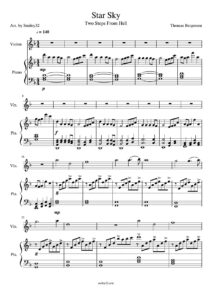 |
|
| Txarango – La Dansa Del Vestit En Fa M |
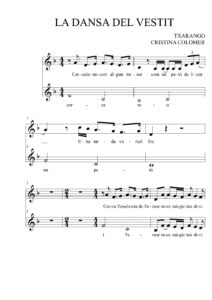 |
|
| Tymoczko, Prof. Dimitri MUSXI 105 Handouts 1 | Book Theory | |
| Tymoczko, Prof. Dimitri MUSIC 106 Handouts | Book Theory | |
| U2 The Piano Collection |
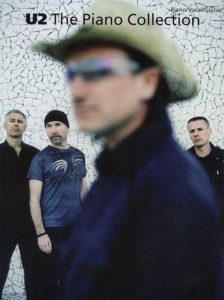 |
U2 The Piano Collection |
| U2 – All I Want Is U | ||
| U2 – Best Of – (Guitar Tab Songbook) |
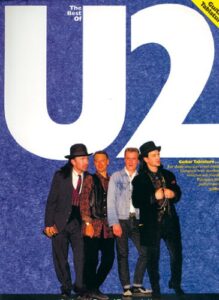 |
U2 – Best Of – (Guitar Tab Songbook) Contents — U2 – Best Of – (Guitar Tab Songbook) |
| U2 – How To Dismantle An Atomic Bomb (guitar tab songbook) |
 |
U2 – How To Dismantle An Atomic Bomb (guitar tab songbook) Contents — U2 – How To Dismantle An Atomic Bomb (guitar tab songbook) |
| U2 – October | ||
| U2 – Stuck In A Moment You Cant Get Out Of | ||
| U2 – The Best of 1990-2000 (Songbook) – U2 sheet music |
 |
U2 – The Best of 1990-2000 (Songbook) – U2 sheet music |
| U2 – The Best Of U2 (recorded versions) Guitar with TABs |
 |
U2 – Best Of – (Guitar Tab Songbook) |
| U2 – The Sweetest Thing | ||
| U2 Rock Score 5 Great Songs |
 |
|
| U2 The Joshua Tree Guitar Songbook with TABs |
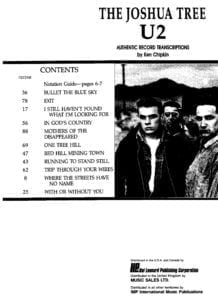 |
U2 The Joshua Tree Guitar Songbook |
| U2 WAR |
 |
U2 WAR |
| UB40 The Best Of – Piano, vocal & Guitar Songbook |
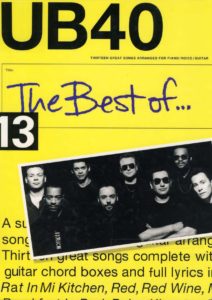 |
UB40 The Best Of – Piano, vocal & Guitar Songbook |
| Ubi Caritas – Ola Gjeilo (Musescore File).mscz | ||
| Ubi Caritas -Ola Gjeilo-with piano improvisation |
 |
|
| Ukelele Chord Finder – Easy to use Guide |
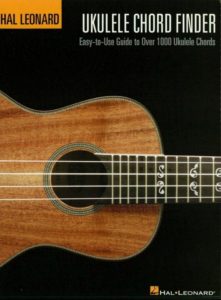 |
|
| Ukrainian folk song.mscz | ||
| Ukulele – 3-Chord Christmas Carols For Ukulele (Guitar Songbook Sheet Music) 30 Holiday Favorites With Just 3 Chords |
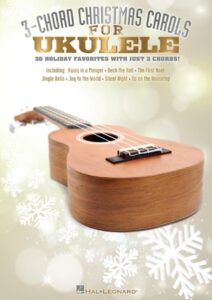 |
Ukulele – 3-Chord Christmas Carols For Ukulele (Guitar Songbook Sheet Music) 30 Holiday Favorites With Just 3 Chords |
| Ukulele – Simple Songs For Ukulele (Guitar Sheet Music) |
 |
Ukulele – Simple Songs For Ukulele (Guitar Sheet Music) |
| Ukulele – The Daily Ukulele (Songbook) – Jim Beloff Guitar Sheet Music |
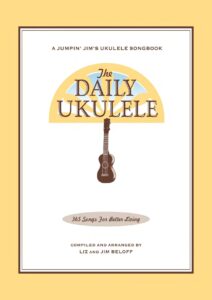 |
|
| Ukulele for Kids Songbook Ukulele Method |
 |
|
| Ultimate 80s Songs |
 |
Ultimate 80s Songs |
| Ultimate Guitar Chord-Book |
 |
|
| Ultimate Guitar Songbook with TABs |
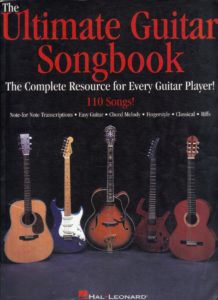 |
Ultimate Guitar Songbook, The (110 songs) |
| Ultimate Latin Piano Riffs – Carlos Campos & Andrew D.Gordon |
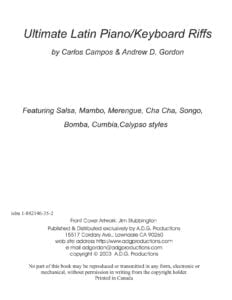 |
Ultimate Latin Piano Riffs – Carlos Campos & Andrew D.Gordon |
| Umberto Tozzi Gloria – Piano Vocal |
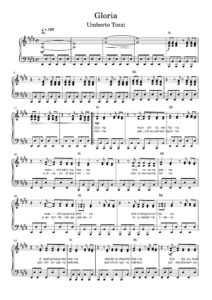 |
|
| Un air de liberté (Et maintenant on va où OST) Khaled Mouzanar | ||
| Un anno d’amore (Mina) | ||
| Un Homme et son Chien (Philippe Rombi) | ||
| Un Monstre À Paris La Seine And I By Vanessa Paradis & Sean Lennon (Piano Vocal) |
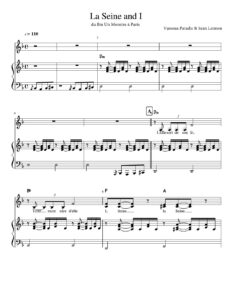 |
|
| Un Monstre à Paris – La Seine And I by Vanessa Paradis & Sean Lennon (Piano vocal).mscz | ||
| Una Mattina (Musescore File).mscz | ||
| Unchained Melody (Sheet Music) – The Righteous Brothers |
 |
|
| Under The Sea Ukulele Guitar From The Little Mermaid |
 |
|
| Under The Sea – Ukulele Guitar.mscz | ||
| Understanding chord progressions for Guitar by Arnie Berle |
 |
Understanding chord progressions for Guitar |
| Understanding The Fundamentals Of Classical Music Course Guide Modern Scholar (Book) |
 |
|
| Undertale Full OST – Toby Fox |
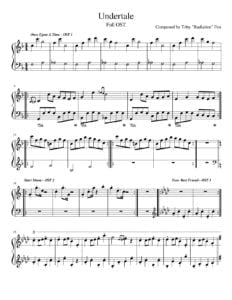 |
|
| Undertale Megalovania Piano – Toby Fox |
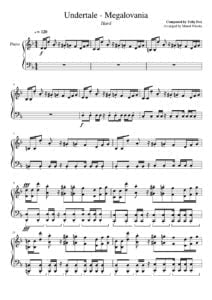 |
|
| Undertale – Home |
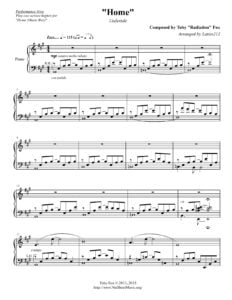 |
|
| Undertale – Megalovania | ||
| Undertale OST – Hopes and Dreams Save the World |
 |
|
| UNDERTALE OST – Hopes and Dreams Save the World Piano Solo.mscz | ||
| Undertale OST – Hopes and DreamsSave the World.mscz | ||
| Undertale Ost – Nyeh Heh Heh! Bonetrousle |
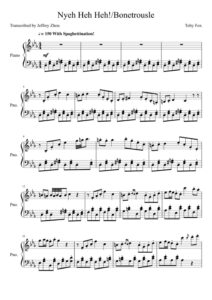 |
|
| Une Heure de Plus (Erik Berchot) | ||
| Unfaithful (Rihanna) | ||
| Unfinished Music – Richard Kramer |
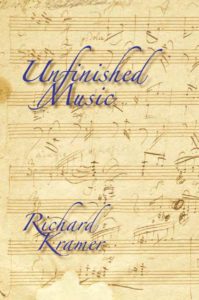 |
|
| Unforgettable – Irving Gordon (Nat King Cole Song) (Musescore File).mscz |
Early in 1903 he filed a copyright application for an opera, A Guest of Honor. A few months later, he formed an opera company with personnel of 30, rehearsed the work at the Crawford Theatre in St. Louis, and embarked on a tour scheduled to take him to towns in Illinois, Missouri, Iowa, Kansas, and Nebraska. Early in the tour, someone associated with the company stole the box office receipts, seriously damaging the company’s financial position. It was a few weeks later in Pittsburg, Kansas that the tour ended with Joplin unable to meet his payroll. Furthermore, unable to pay for the company’s board at a theatrical boarding house, all of his possessions, including the music from the opera, were confiscated. Copies of the score were never filed with the Library of Congress and the music has never been recovered.
Comments in newspapers reveal what the opera was about: black leader Booker T. Washington’s dinner at President Roosevelt’s White House in 1901. This was an event that polarized the nation, with African-Americans, naturally, taking pride in the event. It was for this reason that Joplin paid tribute to Roosevelt with his piano rag A Strenuous Life, and attempted to memorialize the event with his opera.
Joplin had expected Stark to publish the opera, and indicated this in his copyright application. Stark’s decision not to publish it may have caused a temporary break between the two, leading Joplin to publish with other firms in 1903.
Following the failed opera tour, Joplin went to Chicago for a few months, and then returned to Arkansas. There, he met Freddie Alexander, a 19-year-old woman, and was so taken with her that he dedicated The Chrysanthemum to her. The music was published by Stark in the early spring of 1904, and in April, Joplin returned to Sedalia, where he distributed copies and gave several concerts. From there he went to St. Louis for the opening of the World’s Fair, where his Cascades, written for the Fair, received much play. Two other significant rag publications from this year are The Sycamore and The Favorite.
n June, his marriage with Belle having ended, Joplin returned to Arkansas and married Freddie Alexander in Little Rock. Following the marriage, the couple traveled by train to Sedalia stopping at towns along the way so that Joplin could give concerts. Early in July they arrived in Sedalia where Joplin continued to perform. Tragically, Freddie developed a cold that progressed into pneumonia, and died at the age of 20 on September 10, 1904, ten weeks after their marriage.
After Freddie’s funeral, Joplin left Sedalia and never returned. Through the next few years his career seems to have floundered and, having lost much of his money on the failed opera, he was in a poor financial condition. He spent most of the time in St. Louis, picking up insignificant playing jobs for little money. His Binks’ Waltz was written as a commission from a local businessman. Still, he issued several outstanding works during this period. In 1905, his publications included the ragtime waltz Bethena, the ragtime song Sarah Dear, Leola, in which he further develops musical ideas first used in Maple Leaf and The Rosebud March, dedicated to his friend Tom Turpin, who operated the Rosebud Bar. Of these, only The Rosebud was published by Stark, although Leola was issued by a company that may have been associated with Stark. In 1906 Stark issued the march Antoinette and a piano version of the Ragtime Dance. Eugenia, a significant rag, went to a Chicago publisher.
Joplin spent part of 1907 in Chicago, living for a while with his Sedalian friend Arthur Marshall. While in Chicago he collaborated with Louis Chauvin, a brilliant young pianist he had met in St. Louis, and together they composed Heliotrope Bouquet, one of the most enchanting of all rags. Chauvin died several months later, Heliotrope being his only published rag.
In the summer of 1907 Joplin went to New York to make contacts with new publishers and to find financial backing for Treemonisha, an opera he had been working on for several years. Stark was also in New York at this time, and Joplin renewed his friendly relationship with the publisher and his family. It was while at the store connected to Stark’s office that Joplin met Joseph Lamb, a young white man who composed ragtime as an avocation. The two became friends and on Joplin’s recommendation Stark published Lamb’s Sensation in 1908. Lamb went on to become one of ragtime’s great composers and during the rest of the ragtime years published only with Stark.
Joplin published Nonpareil with Stark in 1907 as well as Fig Leaf Rag and Heliotrope Bouquet with him in 1908, but sought out new publishers for his other works. In 1907, Searchlight Rag and Gladiolus Rag (another Maple Leaf clone) with Jos. W. Stern, and Rose Leaf Rag. In 1908 he self-published his ragtime manual School of Ragtime but turned it over to Stark and others to market it. His most significant new publisher became Seminary Music, a firm that shared office space and was closely associated with Ted Snyder Music, a publisher that employed the young Irving Berlin, destined to become America’s greatest songwriter. Seminary issued Joplin’s Sugar Cane and Pine Apple Rag in 1908, and in 1909 Wall Street Rag, Solace, Pleasant Moments, Country Club, Euphonic Sounds, and Paragon Rag. The last was dedicated to the Colored Vaudeville Benevolent Association (CVBA); an organization that he had just joined and with which he would be active during the next few years.
Joplin published only one rag in 1910, Stoptime Rag (with Stern), but completed his opera and tried to get it published. He told his friends that he had turned it over to Irving Berlin at Snyder/Seminary, but that Berlin rejected it a few months later. The following spring, in 1911, Irving Berlin published his greatest hit song up to that time, Alexander’s Ragtime Band, and Joplin complained to friends that the song’s verse was taken from the “Marching Onward“ section of “A Real Slow Drag“ in Treemonisha.
Joplin then altered that section and published the opera himself in mid-May, 1911. The opera’s story relates how Treemonisha, the only educated member of her community, leads her townspeople out of the bondage of ignorance and superstition. The story is an allegory of how Joplin viewed the problems of the African-American community of his time, proposing the view that racial equality would come with education.
Joplin gave a copy of the score to the editor of the American Musician and Art Journal, an important music magazine. In the June issue the magazine published a lengthy review of the score, declaring it to be the most American opera ever composed.
Encouraged by this review, Joplin set about to arrange a performance of the opera, but he was unsuccessful. Through the next four years, he announced several full productions, but none were realized. He never witnessed a completely staged performance of his opera.
His futile efforts to have the opera produced apparently detracted from his other creative work. Stark published Felicity Rag in 1911 and Kismet Rag in 1913, two works that Joplin had composed in collaboration with Scott Hayden a decade earlier. In 1912 Stern published Scott Joplin’s New Rag. In 1913 Joplin formed, with his new wife Lottie, his own publishing company, and they issued Magnetic Rag in 1914. During the next two years, Joplin composed several new rags and songs, a vaudeville act, a musical, a symphony, and a piano concerto, but none of these were published and the manuscripts have been lost.
By 1916, Joplin was experiencing the devastating physical and mental effects of syphilis, a disease he had probably contracted almost 20 years earlier. By mid-January, 1917, he had to be hospitalized, and was soon transferred to a mental institution where he died on April 1, 1917.
Scott Joplin was the most sophisticated and tasteful ragtime composer of the era. But he aspired to more. His goal was to be a successful composer for the lyric stage and he continually worked toward this end.
That he called himself “King of Ragtime Writers,” omitting a claim for his piano playing, reveals his recognition that not all of his music musical skills were on the same high level. His piano playing was described as mediocre, perhaps due to early effects of syphilis. He also played cornet and violin, but put little effort into developing himself on those instruments. He is reported to have had a fine singing voice, and performed at times as a singer. He also had perfect pitch and, on becoming proficient at music notation, composed away from the piano.
As a person, he was intelligent, well-mannered and well-spoken. He was extremely quiet, serious and modest. He had few interests other than music. He was not good at small talk and rarely volunteered information but if a subject interested him he might become animated in his conversation. He was generous with his time and was willing to assist and instruct younger musicians. He had a profound belief in the importance of education.
At the time of his death, he was almost forgotten. Interest in ragtime, too, was quickly waning as the new style of “jazz” took center stage. But Joplin never slipped totally into oblivion. His Maple Leaf Rag continued to exercise its magic on successive generations of musicians and music lovers.
In the 1940s, a group of jazz musicians seeking to revitalize their art with the spirit of the past, included ragtime in their development of “traditional jazz.” This inspired a “ragtime revival,” and though it was slight, it continued to slowly gain adherents. The revival peaked in the 1970s as new recordings of Joplin’s music, produced for the first time on classical labels, set classical sales records. At the same time, the notated music became available through reprinted collections, most notably a two-volume set issued by the New York Public Library and Treemonisha was successfully staged; finally reaching Broadway.
This quickly growing presence inspired George Roy Hill to use Joplin’s music in his film The Sting, which became immensely popular and brought Joplin to the notice of the mass public. The result was unprecedented in music history. Led by music that Joplin had composed more than a half-century earlier, ragtime became a current and universally loved style. Piano recitalists programmed it alongside Chopin mazurkas, dancers stepped to its rhythms in discos, and pop artists played it in stadiums. Recordings of Joplin’s music reached the top rungs of the marketing charts for both classical and popular categories. Ragtime was back. In recognition of his significant achievements, the Pulitzer Committee in 1976 issued a posthumous award for Scott Joplin’s contribution to American music.
The frenzy of the 1970s revival is long over, but Scott Joplin and ragtime are not about to be forgotten. Ragtime has once again become a living language, and its substantial public is not about to relinquish it. Ragtime is now a permanent part of the American musical landscape.
